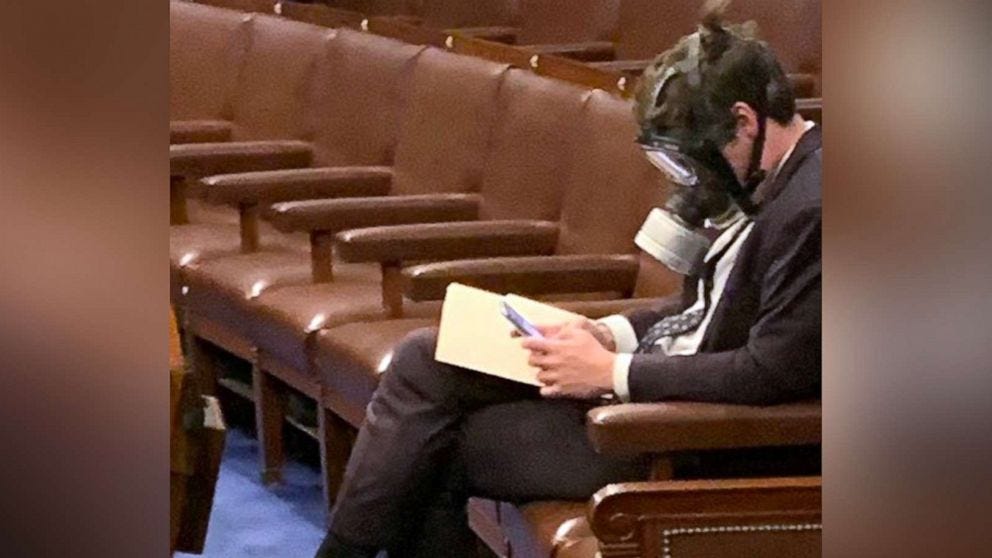Matt Gaetz and the End of History
Attention politics has been here before.
While scrolling down and clicking around Twitter the other day, I came across this tweet from Mario Gabriele:
https://twitter.com/mariodgabriele/status/1378787515969253376?1
I promptly did what I usually do when I see something interesting: I forwarded it to Jonathan V. Last. I figured that if it really was interesting, he'd look into it and have something thought-provoking to say about it. And so he did. And thus we have today's piece by him, “Red Bull, Elon Musk, and Matt Gaetz: Politics and the attention economy.”
The first thing you should do is go to that piece and read it. All of it.
Then think about it a bit. It's full of provocative implications and pregnant with stimulating ideas.
Let me contribute to your thinking with these three notes.
(1) JVL writes of Red Bull and Elon Musk, and of the attention economy and what might be called attention politics, as if these are radically new phenomena. Red Bull and Elon Musk are new. But are the broader concepts? Aren't they perhaps pretty direct descendants of phenomena noticed by other observers over the decades—in the 1980s by Marshall Berman in All That Is Solid Melts into Air: The Experience of Modernity and Neal Postman in Amusing Ourselves to Death: Public Discourse in the Age of Show Business, and in the 1960s by Daniel Boorstin in The Image: A Guide to Pseudo-Events in America? Or a bit earlier, by Plato in his description of the cave in Book VII of The Republic?
This of course doesn't mean that what JVL describes isn't important. It doesn't mean that the attention economy and the attention polity aren’t in some ways different from what went before. It doesn't mean today's form of image-dominance isn't different in important ways from earlier versions of what we're now seeing. It just means we're (probably) not at some singular moment in human history. Late capitalism isn't altogether different from capitalism. Modern celebrity isn't totally different from older fame. Images have often overwhelmed reality. Bubbles have dominated markets for a while in the past. So there may be things to be learned—some of them perhaps a bit reassuring—from history.
(2) JVL argues that postmodern "attention politics" is utterly dominant in the Republican party—see Matt Gaetz—by contrast to the old-fashioned "consequences-matter" approach of the Biden administration. I think this is mostly true. But I also think the woke left has a lot in common with the performative right. So the attraction of attention politics may be less partisan, and more general on both sides, than JVL seems to suggest. And for that matter one does have to ask: What should be the attitude of those of us in the broad center toward attention politics? Pride in not succumbing to it? And/or attention to how to use it in a constructive way?
(3) Finally, just how pervasive and dominant are attention economics and attention politics? Yes, perceptions matter. But don't facts still matter as well? Doesn't reality still intrude? Not every company is like Red Bull, a company that makes nothing and is entirely about its brand. (And even so, doesn't satisfaction with the actual product, and receptivity to its price for that matter, affect the well-being of the brand?) Surely not everything that is solid has melted into air. Images don't today totally dominate reality. Modernity hasn't fully given way to postmodernity.
There are undoubtedly many other questions to raise, and considerations to pursue, along these lines. JVL's thesis deserves to be thought through. So, dear reader, do so.



